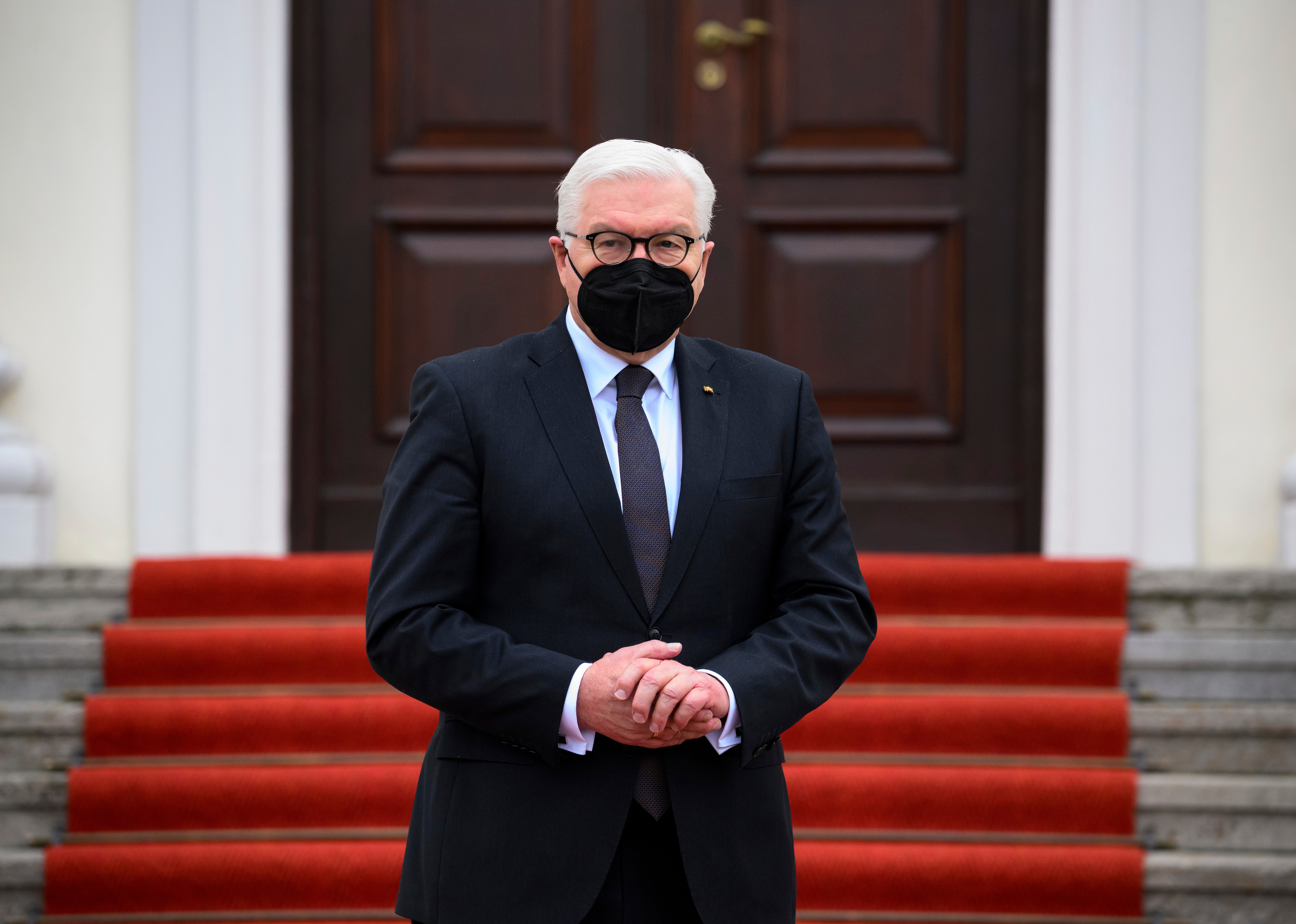German president set to be elected for another term
A special parliamentary assembly is meeting to elect Germany’s president for the next five years

Your support helps us to tell the story
From reproductive rights to climate change to Big Tech, The Independent is on the ground when the story is developing. Whether it's investigating the financials of Elon Musk's pro-Trump PAC or producing our latest documentary, 'The A Word', which shines a light on the American women fighting for reproductive rights, we know how important it is to parse out the facts from the messaging.
At such a critical moment in US history, we need reporters on the ground. Your donation allows us to keep sending journalists to speak to both sides of the story.
The Independent is trusted by Americans across the entire political spectrum. And unlike many other quality news outlets, we choose not to lock Americans out of our reporting and analysis with paywalls. We believe quality journalism should be available to everyone, paid for by those who can afford it.
Your support makes all the difference.A special parliamentary assembly meets Sunday to elect Germany’s president for the next five years. Incumbent Frank-Walter Steinmeier who has been endorsed by most mainstream political parties, is seeking a second term as the largely ceremonial head of state.
The president will be elected by a special assembly of 736 people made up of the members of parliament’s lower house and representatives of Germany’s 16 states. The Social Democrats the Greens and the pro-business Free Democrats — the three parties in Chancellor Olaf Scholz’s governing coalition — are expected to have a majority in the assembly.
Germany’s biggest opposition party — the Christian Democratic Union and its Bavarian sister party, the Christian Social Union — also said that it will support Steinmeier’s reelection, leaving the head of state well-placed to win another five years in office.
Steinmeier, 66, announced that he would seek a second term last May, before the parliamentary election that brought Scholz’s coalition to power and at a time when his chances of re-election looked far from certain. The president said he wanted to help heal divisions widened by the coronavirus pandemic.
Before becoming president, Steinmeier served two stints as Chancellor Angela Merkel’s foreign minister and previously was chief of staff to Chancellor Gerhard Schroeder.
Germany’s president has little executive power but is considered an important moral authority. After a messy parliamentary election result in 2017, Steinmeier helped prod politicians to form a new coalition government rather than holding out for a new vote.
Other than Steinmeier, three other candidates are running for Germany's highest office though none of them has a serious chance of winning.
Gerhard Trabert, 65, a physician, is running for the Left Party, Stefanie Gebauer, 41, was nominated by the Free Voters party, and Max Otte, 57, is the candidate of far-right Alternative for Germany party even though he is a member of the CDU — a fact that prompted his own party to call for him to leave or face possible expulsion.